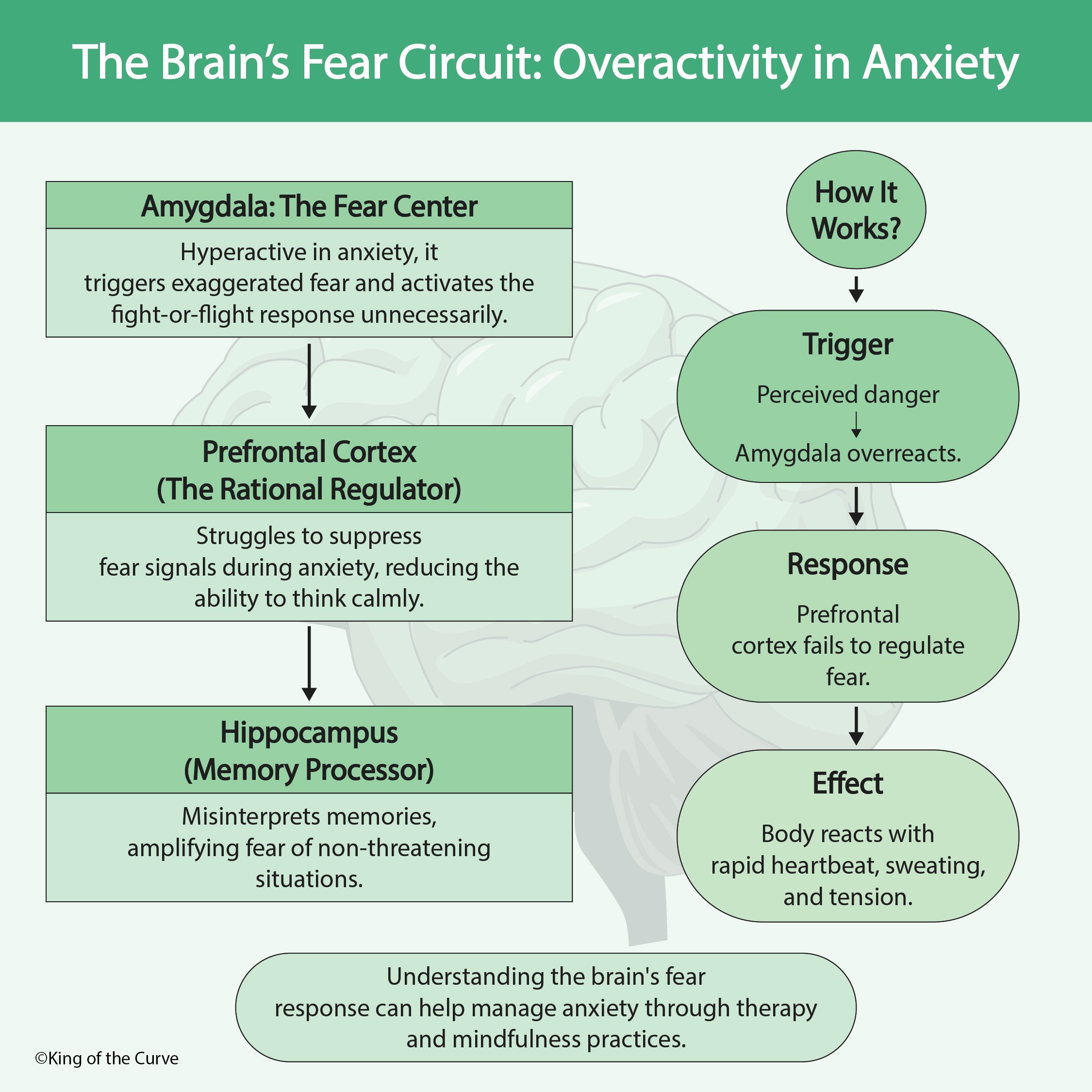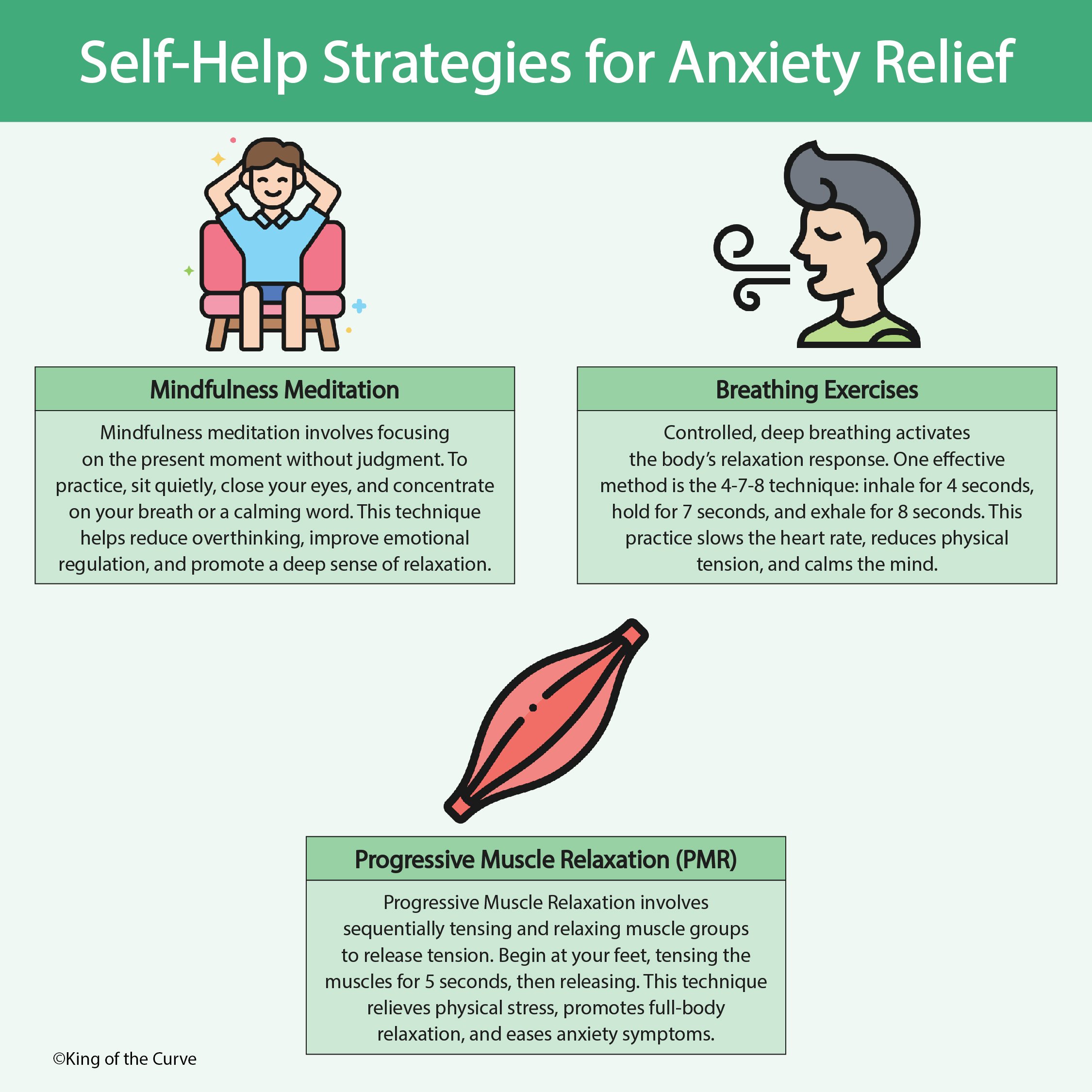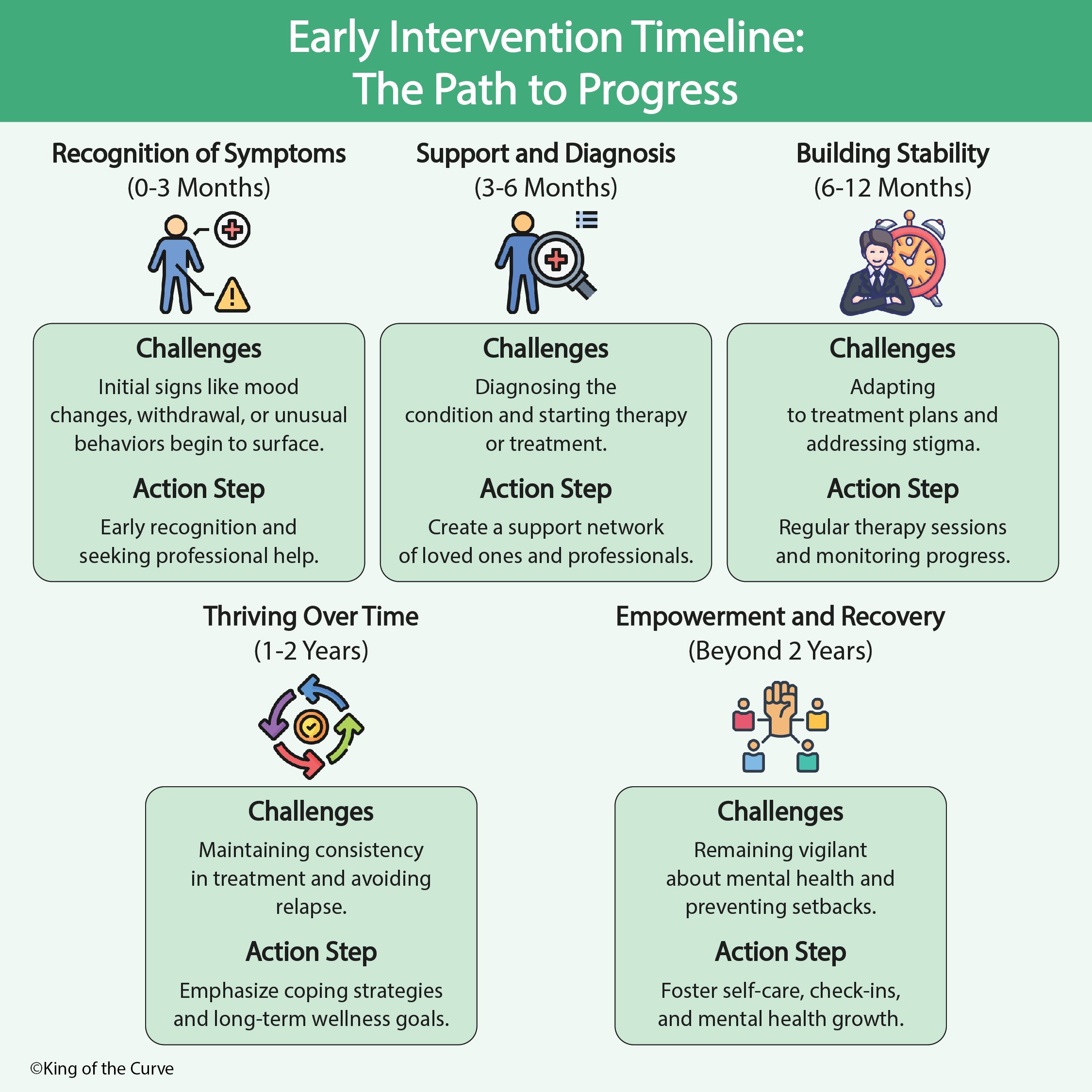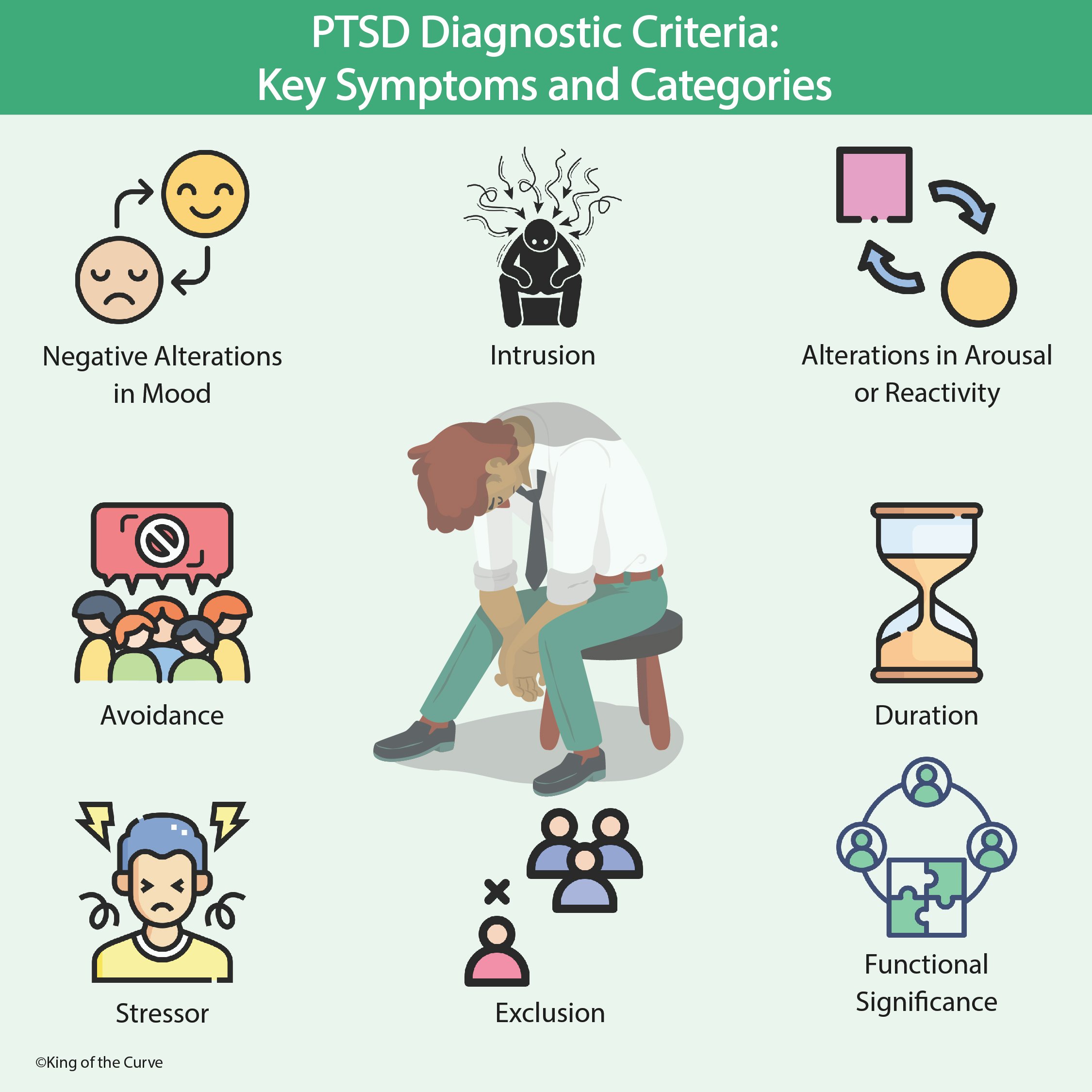
The Cycle of Avoidance: How It Fuels Anxiety and Reduces Quality of Life
Learn how avoidance behaviors fuel anxiety and lower quality of life. Break the cycle with therapy, exposure, and MCAT-relevant psychology insights!

Understanding the Brain’s Fear Circuit in Anxiety: A Must-Know for MCAT Success
Anxiety isn’t just a mental health challenge—it’s also a high-yield topic for the MCAT. Understanding the neuroscience behind fear circuits can help you tackle exam questions and manage pre-test stress. In this blog, we’ll break down the brain’s fear response using King of the Curve’s (KOTC) exclusive visual guide, connecting key concepts to MCAT prep.

Simple Self-Care Techniques for Stress Relief and Emotional Well-Being
In today’s fast-paced world, stress and emotional well-being are major concerns. The good news is that simple self-care techniques can make a huge difference in managing stress and improving mental health. This blog highlights three effective self-care practices: Mindfulness Meditation, Journaling, and Breathing Exercises. Let’s dive into how these techniques work and the benefits they offer.

Self-Help Strategies for Anxiety Relief: Essential for MCAT Prep
Anxiety is a common yet overwhelming experience that can affect daily life, productivity, and overall well-being. While professional treatment options such as therapy and medication can be effective, self-help strategies play a crucial role in managing and reducing anxiety. Here are three effective techniques to help relieve anxiety and restore calmness.

Recognizing Panic Attack Symptoms: A Must-Know for MCAT and Pre-Med Students
Learn how to recognize panic attack symptoms and their relevance to the MCAT. Understand stress responses, neurotransmitters, and real-world applications in medicine. Read more on King of the Curve!

Early Intervention in Mental Health: A Timeline for Better Outcomes | KOTC MCAT
Learn about the early intervention timeline in mental health, from recognizing initial symptoms to advanced treatment. Discover how timely action improves outcomes, reduces severity, and aligns with key MCAT psychology topics. Read more on KOTC MCAT!

Act Early, Thrive Later: The Benefits of Early Diagnosis and Treatment
Recognizing the early signs of mental health conditions and seeking treatment can significantly improve patient outcomes. As future medical professionals, MCAT students must understand the importance of early diagnosis, intervention, and long-term management of psychiatric conditions. The MCAT covers these principles in the Psychological, Social, and Biological Foundations of Behavior section, making them essential knowledge for test day and beyond.

Understanding the Differences Between Delusions and Hallucinations
Mental health conditions can present with a variety of symptoms, but two of the most misunderstood are delusions and hallucinations. While they may seem similar, they are distinct experiences that affect individuals in different ways. Understanding their differences is crucial for medical professionals, caregivers, and students preparing for exams like the MCAT.

What Are Sensory Hallucinations?
Misconceptions about mental health conditions, particularly delusions and hallucinations, can lead to stigma, fear, and inadequate support for those affected. By fostering understanding and empathy, we can break down barriers and improve patient outcomes.

Empathy Over Stigma – Understanding Delusions and Hallucinations for Pre-Med Students
Misconceptions about mental health conditions, particularly delusions and hallucinations, can lead to stigma, fear, and inadequate support for those affected. By fostering understanding and empathy, we can break down barriers and improve patient outcomes.

The Power of Empathy in Mental Health
Mental health awareness isn’t just a buzzword—it’s a cornerstone of modern medicine. As you prepare for the MCAT, you’ll encounter questions about psychological disorders, including symptoms like delusions and hallucinations, which are often tied to conditions like schizophrenia or bipolar disorder. But beyond the exam, understanding stigma, empathy, and mental health symptoms prepares you to connect with patients in real-world clinical settings.

Understanding the Importance of Early Mental Health Intervention
Mental health plays a crucial role in our overall well-being, yet early intervention is often overlooked. The journey to recovery is a process, and taking the right steps at the right time can make all the difference. In this blog, we’ll explore the early intervention timeline and how recognizing symptoms, seeking support, and maintaining stability can lead to long-term mental wellness.

Understanding PTSD: Key Symptoms and Diagnostic Criteria
Learn about PTSD symptoms, diagnosis, and treatment options. Understand key signs like intrusion, avoidance, and mood changes. Find help for PTSD recovery today!

Gradual Physical Changes and Social Engagement Across Adulthood
Discover how physical changes occur in adulthood and the importance of social engagement for healthy aging. Learn prevention tips for aging gracefully!

Erikson’s Stages of Psychosocial Development: Conflict and Growth Across the Lifespan
Explore Erikson’s 8 Stages of Psychosocial Development, from infancy to later life. Learn about key conflicts, positive outcomes, and how each stage shapes personality and well-being.

Erikson’s Stages of Psychosocial Development: A Comprehensive Guide
Human development is a complex journey shaped by experiences, relationships, and challenges. One of the most influential theories explaining this process is Erik Erikson’s Psychosocial Development Theory. It outlines eight key stages spanning from infancy to later life, each defined by a psychosocial conflict that must be resolved to achieve healthy psychological growth.

Seasonal Affective Disorder (SAD): Understanding the Emotional Impact of Changing Seasons
Seasonal Affective Disorder is a real and impactful condition, but by recognizing its signs and symptoms, individuals can take proactive steps to manage it effectively. Whether it’s light therapy, staying socially active, or improving diet and sleep, small lifestyle changes can make a big difference in combating the winter blues.

Abdominal Aorta: Key Anatomy and Clinical Relevance for the MCAT
The abdominal aorta is a major artery that supplies oxygenated blood to the abdominal organs and lower extremities. Understanding its branches, anatomical positioning, and clinical significance is crucial for medical students and MCAT aspirants.

Mechanism of Action of Selective Serotonin Reuptake Inhibitors (SSRIs) – MCAT Behavioral Science Insight
Selective serotonin reuptake inhibitors (SSRIs) are a widely prescribed class of antidepressants that play a key role in treating mood disorders. Understanding their mechanism of action is essential for MCAT success, particularly in the Psychological, Social, and Biological Foundations of Behavior section.

How Cultural and Social Contexts Shape Behavior: A Deep Dive for MCAT Success
Understanding cultural and social contexts is crucial for the MCAT, as it enhances your grasp of human behavior, a core component of the Psychological, Social, and Biological Foundations of Behavior section. This topic isn't just about memorizing definitions—it's about analyzing how norms, values, peer influence, and cultural dynamics influence behavior.
